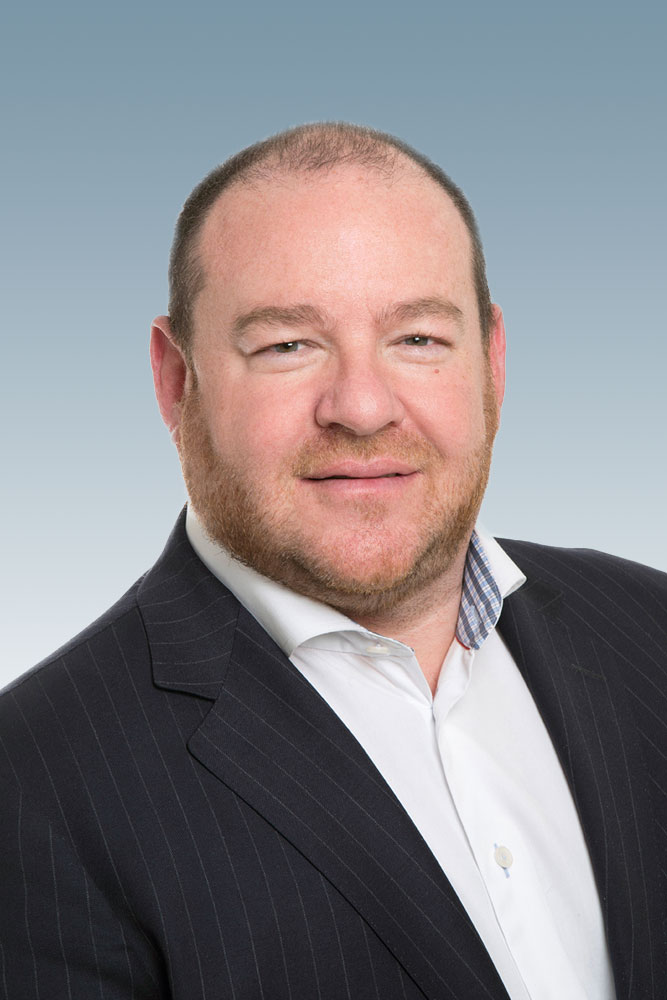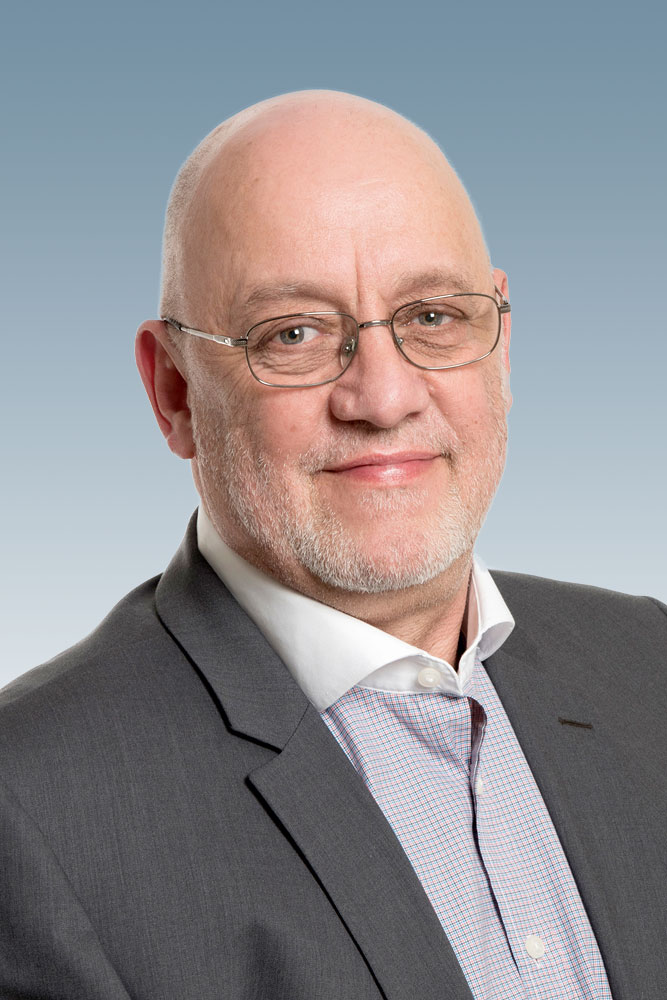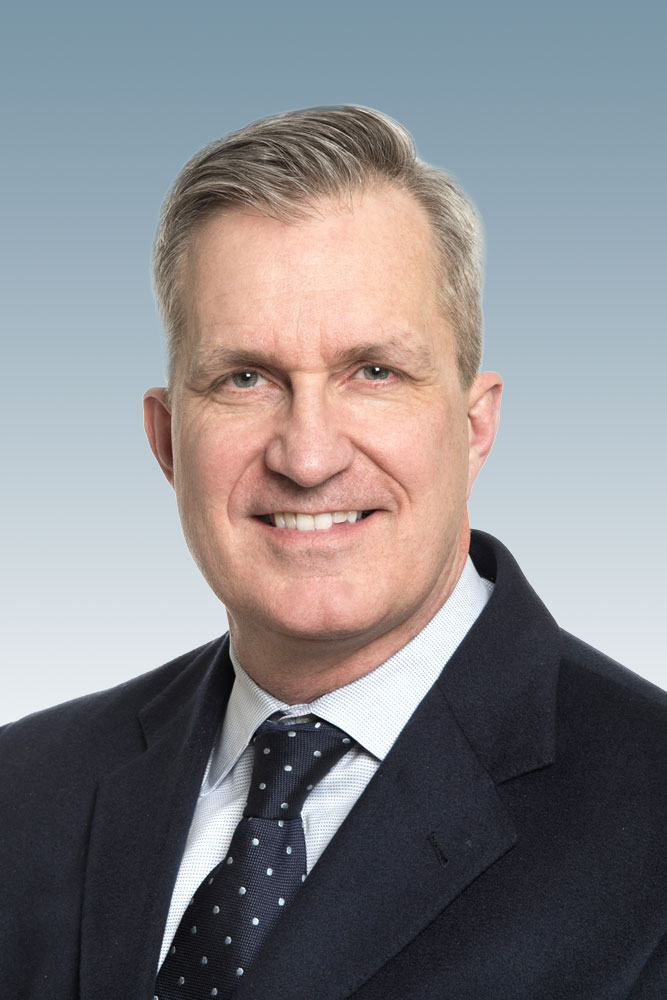Our Vision

Tom Gergely
Chair, Board of Directors
We have much to celebrate today. London Health Sciences Centre’s legacy of innovation, collaboration, adaptability and always putting the patient first is alive, well and thriving. However, health care is at a crossroads. We are in a time of unprecedented and dynamic change at the provincial, regional and local level and I am proud to say that LHSC is playing a leading role in planning for the future needs of health care in our community.
Today, we face both immense challenges in the form of rising health care costs, an aging population and funding constraints as well as immense opportunities, which include breakthroughs in technology, continuous enhancement of best practices, bench to bedside research development and finding new ways to ensure patients receive the care they need in the right place and at the right time.
Through partnerships with health-care stakeholders, regulators, fundraisers and the community, London Health Sciences Centre is continuing to transform a new future for health care, one where we can continue to focus on a patient-centered approach that ensures exceptional quality of care and patient experience. This would not be possible without the unwavering dedication, commitment and collaboration of all of our staff and physicians - exemplified in the outstanding care provided every day.
As we build the future together, our culture, values and focus on the patient will not change. London Health Sciences Centre will continue to succeed because of our shared purpose, commitment to one another and resolve to achieve the highest quality care.
I very much look forward to the future as we forge ahead and shape what a leading health-care organization can be.

Murray Glendining
President and CEO
Significant changes are taking place in today’s health-care system in Ontario and I am pleased that LHSC is positioning itself to lead positive change that builds on our long legacy of health care, research and education leadership. As one of Canada’s largest acute care hospitals we are committed to systems solutions, including working with community and health care partners to take advantage of opportunities to improve care for all patients.
Part of system transformation is finding more effective ways of caring for those whose needs may be best served in a community setting. A great example of this new direction is the work done by our mental health care program, in collaboration with the Canadian Mental Health Association Middlesex. The opening of London’s Mental Health and Addictions Crisis Centre has helped alleviate some of the pressures faced in our Emergency Department while providing timely, enhanced and easily accessible professional supports for patients whose mental health concerns do not require hospitalization. LHSC is also proud to be the first hospital in Ontario working in partnership with the Canadian Mental Health Association to offer a community-based residential adult eating disorders program at 54 Riverview Avenue.
Our Emergency Departments, supported by system-wide change initiatives at LHSC, are implementing a new model of care, developed and led by front-line service providers, which has resulted in a significant improvement in wait times and performance. We will continue this work as we move toward full implementation of this model, which requires removal of system access and flow challenges.
LHSC has also led the way in connecting our community health-care partners through ClinicalConnect™ which was implemented throughout eHealth Ontario’s Connecting South West Ontario Program, for which LHSC is the program manager. Today, authorized health care professionals across our region have secure, real-time access to their patient's integrated health record. Information from 67 hospital sites, the four community care access centres, the four regional cancer programs and provincial lab and diagnostic imaging centres is available electronically. Bringing all this information together, enables care givers to make the best decisions possible about their patient's care.
This rapid health-care system transformation is occurring within an environment of ongoing funding constraints; however after a fourth year of no funding increases, you will see in the audited financial statements for 2015/16 that LHSC was able to maintain a positive financial outcome. This was achieved while maintaining and, in some cases, even increasing service volumes, which is a direct result of the entire organization working toward more efficient and effective approaches this past year. I thank all those who made this outcome possible.
At the same time, we anticipate that there will be similar funding challenges in the coming year and our work to establish improved and more efficient care delivery models will continue. Whether delivered in-hospital, or in the community, our focus is always on maintaining or enhancing the exceptional care standards that patients expect, and which we demand of ourselves.
Moving forward, LHSC is working toward establishing a much stronger partnership and shared accountability model with physicians. Working together, we will create positive and lasting change to improve care for the patients we serve, in addition to ensuring a standardization of practices and processes within the hospital. We will be implementing a two-year transitional plan which will provide a roadmap to ensure that LHSC delivers a focused, relentless and standardized approach to improving the quality, safety, and consistency of care and the patient experience across our organization.
The comprehensive work we have undertaken over the past two years, which we will build further upon in the years ahead, would not be possible without the commitment, dedication and compassion of our Board of Directors, patient advisors, staff, physicians, researchers, volunteers and students.
As we look ahead to the coming year there are challenges, but also real opportunities to transform the way care is provided. All of the work underway in our hospital and with our system and community partners reflects LHSC’s commitment to help lead positive system transformation. I am confident that, working together, we will successfully build a stronger, more sustainable system of care for the future.

Dr. Mark MacLeod
Chair, Medical Advisory Committee
The Medical Advisory Committee (MAC) is the primary liaison between medical practitioners and hospital administration at London Health Sciences Centre as required by the Public Hospitals Act. We credential medical professionals (physicians, dentists and midwives) for privileges at the hospital and provide oversight of the quality of care provided by those practitioners. The Committee is essentially in place to promote the highest standards of care throughout the hospital. Through its subcommittees, the MAC monitors and approves initiatives for improving the quality of care provided to patients and their families.
Over this past year, the MAC has participated in the development of policies which are fundamentally important to us as health care practitioners and most importantly to our patients: access to high cost drugs and the implications of legislation to allow for physician assisted dying.
Emerging drug therapies and treatments often come with enormous costs, and in many cases, a restrained supply. A standardized approach to determining access to these medications is needed to ensure that we are providing the right care to the right patient at the right time. This work is ongoing and will continue to be necessary as new treatment options are discovered and made available to patients.
As I write this message, the deadline for new legislation on the issue of physician-assisted dying (PAD) has been extended to June 6, 2016. Canadian lawmakers and health-care regulators must decide whether institutions are obliged to provide PAD and hospitals have been asked to consider how they will implement this practice should it be requested of them. The MAC is, and will continue to be, involved in developing a rigorous policy and process to determine what our practice will look like if required.
As I complete my final year as the Chair of this committee, I reflect on the work we have done – including the challenges noted above – with great pride and accomplishment. Our committee takes very seriously our responsibility for promoting the highest standards of medical care throughout the hospital. I am proud of the strong relationships we have with hospital leadership, and with our credentialed staff. But I am most pleased that we have been able to orient the work we have done toward improving the quality of care our patients receive.
I would like to take this opportunity to thank LHSC President and CEO Murray Glendining and LHSC’s Board of Directors for their leadership and support. Thank you as well to LHSC MAC Vice-Chair, Dr. Guido Filler, to our counterparts at St. Joseph’s Health Care London, Dr. Sarah Jarmain (MAC Chair) and Dr. Collin Clarke (MAC Vice Chair), to Bill Davis (City-Wide Director, Medical Affairs), Dr. Robin Walker (Integrated VP Medical Affairs and Medical Education) and finally, Tracey Pace for her administrative support through the years. Their ongoing work is changing the patient experience for the better. I look forward to seeing what they accomplish in the year to come.

